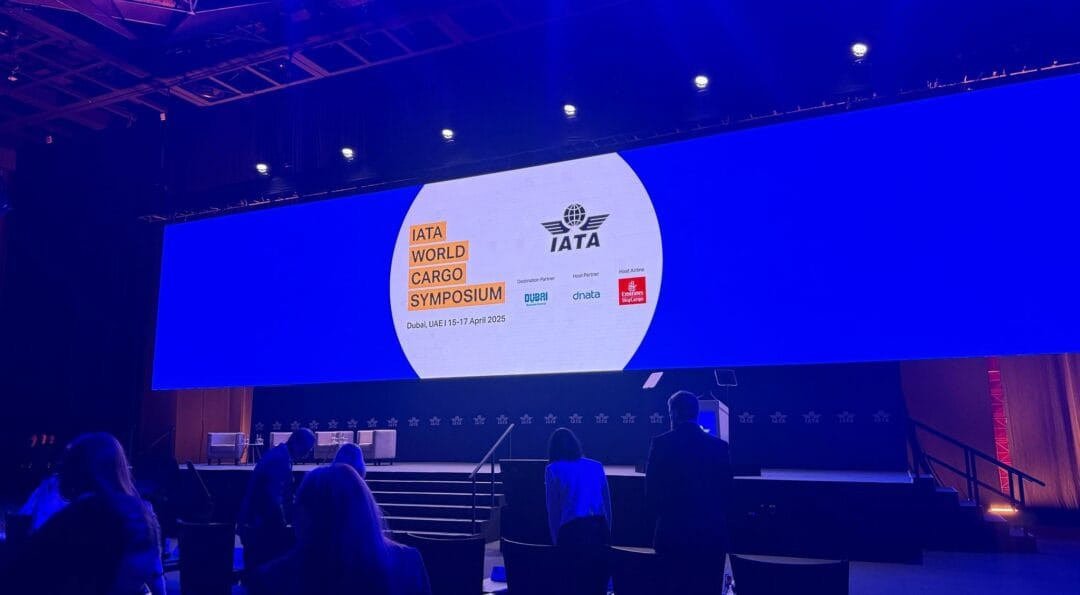
Against the background of the record attendance in Dubai, the 2025 global freight symposium (WCS) closed a strong invitation to innovate faster, greater cooperation, and a re -imagined approach to digitization and sustainability through the air cargo industry. From artificial intelligence breakthroughs to innovation at the level of al -Qaeda and organizational obstacles, the closing discussions drew a vivid picture of the industry that transmits the complexity with the adoption of the transformation.
“In an unpredictable world, air freight continues to achieve,” said Brendan Sullivan, IATA global goods head, said.
“On the average day, 180,000 tons of goods reach its air destination. This is the lifeblood of global trade, which leads to growth, creating job opportunities and spreading prosperity.”
In thinking about the main topics of this week, Sullivan pointed out: “During the opening plenary session, it was very clear that continuous cooperation is necessary to achieve these goals, and we need to do this faster by working together, by embracing digitization as it supports them, along with all our partners in the supply chain.”
He described digitization as a dominant force: “The stream of digitization was, once again, the giant on the second day. Sullivan stressed that “trust and transparency along the supply chain has become more important” and pointed to “the adoption of one record as the preferred industry standard for the exchange of smooth and effective data” as a common topic throughout the event.
Other priorities are depicted: “The sustainability stream discussed waste reduction strategies in the air freight industry and provided examples of how to adopt the principles of the circular economy that can transform air cargo by reducing waste and improving efficiency.” Regarding compliance, Sullivan was clear: “Compliance is our actions,” and urged the sector to the union against “the advanced security threats and compliance.” He added: “The importance of planning innovation data and the appropriate program, and how it supports us as an industry to provide more sustainable predictions of resources.”
He concluded by saying: “It was great to see everyone here from all over the air freight supply chain gather and make our industry advance.”
Building standards
Andres Bianchi, CEO of Latam Cargo and IATA Consultant Chairman, emphasized the transformative capabilities of cooperative digital strategies. “When you look at the problem and instead of focusing on the tool, you focus on the problem you need to solve, and connect it to an already existing tool … We can spread this faster and much more efficient than creating our own solution.”
He warned of the fragmented approach: “The only only effective way to do something is cooperation in the beginning … How can we break the silos and link each other?”
“Sometimes it takes much longer than we would like … it includes the organizers and some of the stakeholders who exceed our control,” Banchi also admitted to the organizational deficiency.
Regarding sustainability, he encouraged a broader view: “We tend, by default, to focus on carbon dioxide discounts … but elements such as waste reduction are still decisive. For example, we transmit a lot of contact materials. We need to reduce food loss.”
Reflection on innovation from a thousand to Z
The innovation gallery brought new energy, with Daniel Ling from Latam Chile and SAPARAMANATE from UNICES urges the industry to redefine what innovation really means.
“It is necessary to create a safe space as people feel comfortable bringing ideas,” Ling said. He stressed that not all digital breakthroughs: “We have shown three different ideas that change completely the way we use wood in our warehouses … It is recycling, and they are re -use, and we already provide money in this process.”
“Innovation can be anything that can solve problems in an easy way … he does not think outside the box, he believes that there is no box,” said Ramnath. He warned against adopting blind technology: “Artificial intelligence is not a magic occurrence … customers will not buy our solutions – they want to solve their problems.”
Artificial intelligence in goods
A prominent session on artificial intelligence revealed how artificial intelligence has already reshaped everything from quotation and pricing to abnormal detection and customer service.
“Now, when we sign a contract … the implementation is faster than signing the contract. The legal administration takes more time than the IT department now,” said Matt Bayt, CEO of Cargai.
“You can read the email, take the price in your system and re -offer a quote … we are at this level of accuracy already.”
Mukundh Parthasaathy noticed from RTS: “Our industry is more resistant to change … We prefer stability on experimentation. It will change. You will leave on your own if you do not adapt to change.”
“Artificial intelligence will not take away the decision -making process, but it will actually help a person to prove decision -making,” said Gaetan Van Dien from Pandora Intelligence.
But the risks remain. Partsassaratti warned: “He is an unwanted model,” Barthasaratti warned. “Artificial intelligence can touch. It will make up for things … there is no accountability.” “We need to be careful not to organize in a way that does not become objection.”